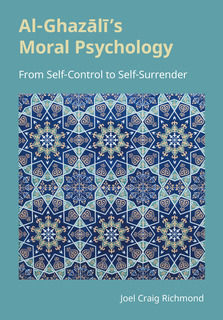LIBRARY COLLECTIONS
Complete CollectionIslamic Studies
From Self-Control to Self-Surrender
A central difficulty when reading al-Ghazālī (d. 1111) is understanding why he attempts to bring together seemingly disconnected aspects of ethical theory. He inclines toward a more philosophical influence of virtue ethics in his earlier book, The Scale of Action (Mizān al-‘amal), while in his vast encyclopedic work, The Revival of the Religious Sciences (Iḥyā’ ‘ulūm al-dīn), his conception of religious practice was greatly informed by the emerging Sufism of his time. These two works, in particular, lay the foundation for understanding his program for Islamic practice and his unique balance of reason and revelation. Al-Ghazālī’s ethical writings are not easily explained by the existing categories and demarcations found in contemporary ethical discourse, so it becomes essential to present what was at the centre of his pedagogy. This book argues that the thread connecting each method of expression is al-Ghazālī’s dramatic and explicit emphasis on self-control as the path to felicity. It demonstrates that the underlying substrate of al-Ghazālī’s ethics is his constant focus on restraining and redirecting the body, emotions, and thought.
The study first examines the destructive vices, specifically in relation to eating, sexual desire, anger, and speech. It is then followed by looking at al-Ghazālī’s early work, The Scale of Action which explains his views on controlling the body and achieving moderation through the process of habituation. It then turns to investigate al-Ghazālī’s views on controlling the emotions and how he understands thought and its role in unification of the fragmented self. It is only in the final chapter, entitled self-surrender, that the study attempts to answer the question of why, for al-Ghazālī, the subject of self-control takes such great importance. His directions for self-control are not without purpose and are designed to culminate in a unique form of knowledge. Although the aim of acquiring knowledge is initially for the purpose of inducing proper action, the final result, according to al-Ghazālī, must culminate in recognition and love of God. For these reasons, the study naturally concludes by answering the question of why these techniques of restraint were of such great significance to al-Ghazālī.

ISBN Hardback) 9781800505629
Price (Hardback) £70.00 / $95.00
ISBN (eBook) 9781800505636
ISBN (ePub) 9781800506657
Price (eBook & ePub) Individual £75.00 / $100.00
Institutional £70.00 / $95.00
Publication 15/11/2025
Series: Monographs in Arabic and Islamic Studies
Pages 168
Size 244 x 170mm
Readership scholars
Only users granted permission may view this project's texts, resources, and other content.

We use cookies to analyze our traffic. Please decide if you are willing to accept cookies from our website. You can change this setting anytime in Privacy Settings.